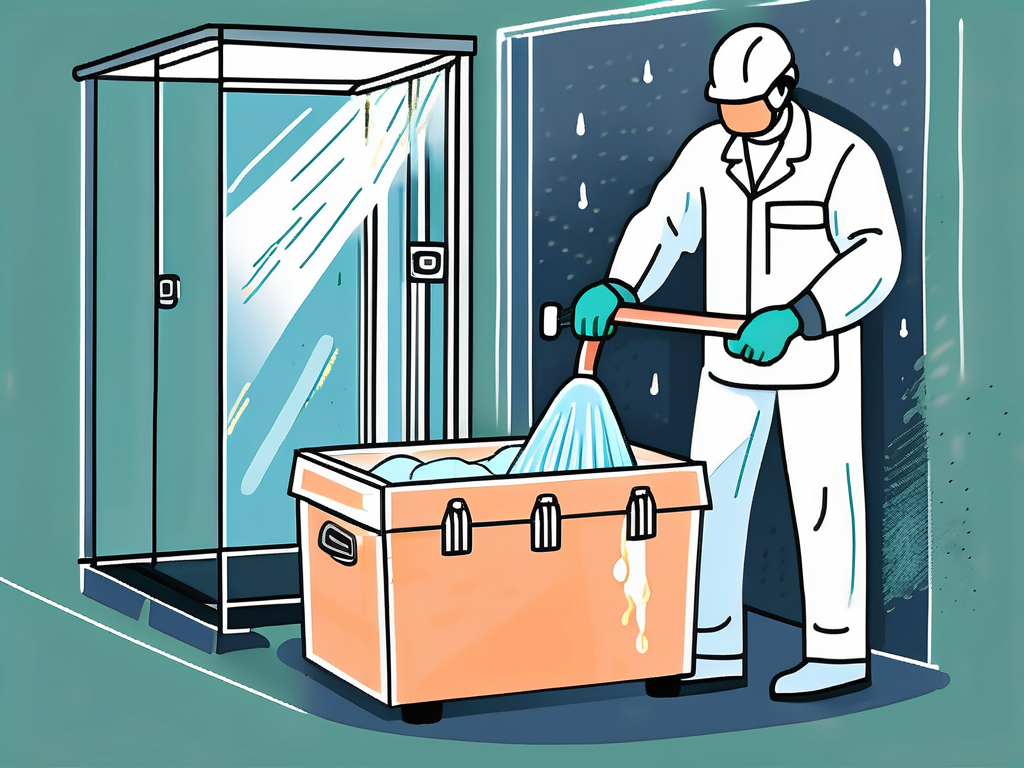Snoring and sleep apnea are common sleep disorders that can affect both the quality of sleep and overall health. Understanding these conditions and finding effective solutions is crucial for individuals facing these issues. One such solution is the use of mouth guards, which can significantly alleviate the symptoms associated with snoring and sleep apnea.
Understanding Snoring and Sleep Apnea
Snoring is a common condition that occurs when the flow of air through the mouth and nose is partially blocked during sleep. This obstruction causes the surrounding tissues to vibrate, resulting in the characteristic snoring sound. While occasionally snoring is harmless, chronic snoring may indicate a more serious underlying condition known as sleep apnea.
The Science Behind Snoring
Snoring primarily occurs due to the relaxation of muscles and tissues in the throat and tongue. This relaxation narrows the airway passage, making it harder for air to flow freely. As a result, snoring becomes more prominent, disrupting the natural sleep patterns.
It is interesting to note that certain factors can contribute to the likelihood of snoring, such as obesity, alcohol consumption, smoking, and nasal congestion. These factors can further exacerbate the narrowing of the airway, increasing the chances of snoring during sleep.
What is Sleep Apnea?
Sleep apnea is a sleep disorder characterized by repeated pauses in breathing during sleep. These pauses, known as apneas, can last for several seconds or even minutes, disrupting the normal sleeping pattern. Sleep apnea can lead to frequent awakenings, decreased oxygen levels, and various other health complications if left untreated.
There are three main types of sleep apnea: obstructive sleep apnea, central sleep apnea, and complex sleep apnea syndrome. Obstructive sleep apnea is the most common form and occurs when the throat muscles relax, blocking the airway. Central sleep apnea, on the other hand, is caused by the brain failing to signal the muscles to breathe. Complex sleep apnea syndrome is a combination of both obstructive and central sleep apnea.
The Role of Mouth Guards
Mouth guards are specially designed oral devices that can help alleviate the symptoms associated with snoring and sleep apnea. They work by repositioning the jaw and supporting the airway, ensuring proper airflow and reducing obstructions during sleep.
Individuals suffering from snoring and sleep apnea often find relief through the use of mouth guards. These oral devices are designed to promote better breathing by adjusting the position of the jaw during sleep. By preventing the collapse of tissues in the throat and keeping the airway open, mouth guards help reduce the frequency of apnea episodes and snoring, leading to a more restful night's sleep.
How Mouth Guards Work
Mouth guards, also known as mandibular advancement devices, work by advancing the lower jaw slightly forward. This positioning helps in maintaining an open airway, preventing the collapse of tissues and reducing snoring and apnea episodes. By promoting better airflow, mouth guards can significantly improve sleep quality and reduce disturbances caused by these sleep disorders.
Furthermore, the adjustment of the jaw position by mouth guards can also help in reducing the strain on the muscles and tissues in the throat. This not only aids in decreasing snoring but also contributes to a more relaxed and uninterrupted sleep. The effectiveness of mouth guards in improving sleep quality has made them a popular choice for individuals seeking non-invasive solutions to their sleep-related issues.
Different Types of Mouth Guards
There are various types of mouth guards available, and the choice depends on individual needs and preferences. Custom-made mouth guards, created by dental professionals, provide the highest level of comfort and effectiveness. Alternatively, over-the-counter mouth guards that offer a more affordable option for those who prefer a self-fitting approach.
Custom-made mouth guards are crafted to fit the unique oral structure of each individual, ensuring maximum comfort and efficacy. These personalized devices are often recommended for those with specific dental considerations or severe sleep apnea. On the other hand, over-the-counter mouth guards, while more cost-effective, may not provide the same level of customization and precision in fit. However, they still offer a practical solution for mild to moderate cases of snoring and sleep apnea.
Benefits of Using Mouth Guards
Utilizing mouth guards to manage snoring and sleep apnea can bring several benefits, both in terms of sleep quality and overall health.

Improving Sleep Quality
The primary benefit of mouth guards is undoubtedly the improvement in sleep quality. By maintaining an open airway and reducing snoring and apnea episodes, individuals can experience more restful nights. Quality sleep is vital for overall well-being, providing rejuvenation and allowing the body to repair itself.
Reducing Health Risks Associated with Sleep Apnea
Sleep apnea has been linked to various health conditions, including hypertension, cardiovascular disease, and diabetes. Through consistent use, mouth guards can help mitigate these risks by addressing the root cause of sleep apnea and promoting healthier breathing patterns during sleep.
Moreover, the use of mouth guards can also have positive effects on one's mental health. The frustration and fatigue caused by poor sleep due to snoring or sleep apnea can lead to irritability, difficulty concentrating, and even depression. By improving sleep quality, mouth guards can help individuals feel more refreshed and alert during the day, leading to better mood and cognitive function.
Enhancing Dental Health
Aside from the benefits related to sleep and overall health, mouth guards can also play a role in enhancing dental health. Bruxism, or teeth grinding, is a common issue that often occurs during sleep and can lead to worn-down teeth, jaw pain, and headaches. Mouth guards provide a protective barrier between the upper and lower teeth, preventing damage caused by grinding and clenching. This not only preserves the integrity of the teeth but also helps alleviate discomfort in the jaw and head region.
Choosing the Right Mouth Guard
When considering mouth guards, several factors should be taken into account to ensure optimal comfort and effectiveness.

It is essential to understand that mouth guards are not one-size-fits-all solutions. Each individual may have different needs and requirements when it comes to selecting the right mouth guard. Factors such as the severity of snoring or sleep apnea, jaw positioning, and individual comfort preferences play a significant role in determining the most suitable option. Therefore, seeking professional advice is crucial in making an informed decision.
Factors to Consider
Factors such as the severity of snoring or sleep apnea, jaw positioning, and individual comfort preferences play a significant role in selecting the right mouth guard.
Moreover, it is important to consider any underlying dental issues that may impact the choice of a mouth guard. For instance, individuals with a history of teeth grinding may require a different type of mouth guard compared to those with temporomandibular joint (TMJ) disorder. Taking into account these specific factors can lead to a more tailored and effective solution.
Professional Consultation and Customization
While over-the-counter mouth guards might seem convenient, custom-made mouth guards offer the best fit and maximum comfort. Dental professionals can assess the unique jaw structure and customize mouth guards that provide the most effective results while minimizing discomfort.
Proper Maintenance of Mouth Guards
Regular maintenance is essential to ensure the longevity and hygiene of mouth guards.

When it comes to maintaining your mouth guard, there are a few additional tips that can help prolong its lifespan and effectiveness. In addition to regular cleaning, it is recommended to soak the mouth guard in a denture cleaning solution at least once a week to remove any stubborn bacteria or stains. This extra step can help keep your mouth guard looking and feeling fresh.
Cleaning and Storing Your Mouth Guard
Mouth guards should be cleaned thoroughly using a mild soap or denture cleaner and warm water. Avoid using hot water, which can cause distortion. After cleaning, store the mouth guard in a designated container to protect it from damage or loss.
Furthermore, it is important to let your mouth guard air dry completely before storing it to prevent the growth of mold or bacteria. Avoid storing it in a closed container while it is still damp, as this can create a breeding ground for harmful microorganisms.
When to Replace Your Mouth Guard
Over time, mouth guards may wear out or accumulate bacteria, decreasing their effectiveness. Regularly inspecting the mouth guard for signs of wear, such as cracks or distortion, and replacing it as needed ensures optimal performance and hygiene.
It is also worth noting that lifestyle changes or dental adjustments may necessitate a new mouth guard. For example, significant weight loss or gain can affect the fit of your mouth guard, requiring a replacement to ensure proper functionality.
In conclusion, mouth guards offer an effective solution for individuals suffering from snoring and sleep apnea. By supporting proper jaw positioning and maintaining an open airway, mouth guards can significantly reduce snoring, improve sleep quality, and minimize associated health risks. With proper maintenance and regular check-ups, mouth guards can provide lasting relief and promote better sleep for those in need.













